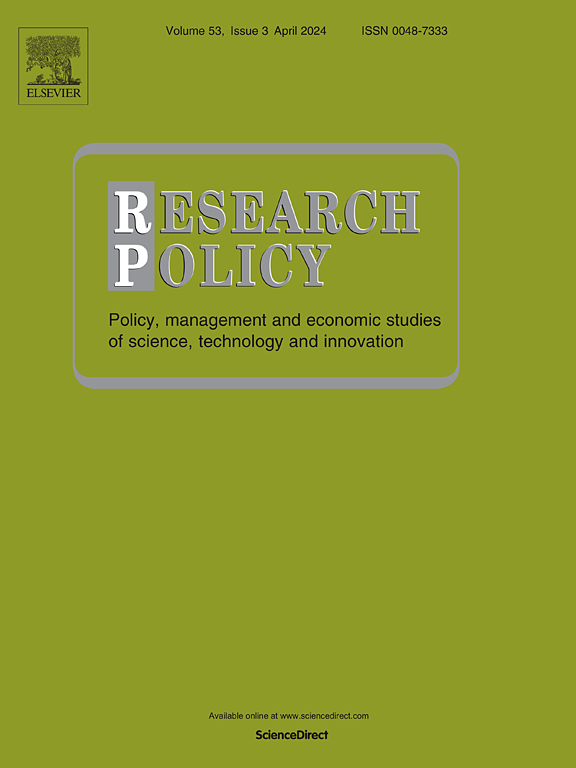The development of emerging market defence enterprises: late industrialisation, catching-up, and the challenge of moving beyond linking and leveraging1
IF 8
1区 管理学
Q1 MANAGEMENT
引用次数: 0
Abstract
We examine how emerging market defence entities, as industry latecomers, have internationalised and gained market share, and affected industry dynamics. It investigates the role that sectoral innovation systems and industrial policies have played, and whether and how these defence entities have been able to develop their indigenous innovation capabilities. Four in-depth country cases are analysed longitudinally, from the inception of their domestic military industries into the present - namely Singapore, South Korea, Turkey, and the United Arab Emirates. We find that the policy landscape through industrial policy and government support, combined with shifts in technology and demand, created conditions for emerging market defence entities to engage in limited catch-up with incumbents. We highlight the challenges they have had in moving beyond linking and leveraging in developing their indigenous industrial capabilities. We contribute towards our understanding of the interplay between sectoral innovation systems, industry latecomers and the role that internationalisation can play in taking advantage of possible windows of opportunity. We show how the industry specificities of the defence sector have restrained some of these opportunities and similarly how domestic sectoral innovation systems can either facilitate or impede the exploitation of these opportunities.
新兴市场国防企业的发展:工业化后期、追赶以及超越联系和杠杆化的挑战
我们研究新兴市场防御实体,作为行业后来者,如何国际化和获得市场份额,并影响行业动态。它调查了部门创新系统和产业政策所起的作用,以及这些国防实体是否以及如何能够发展自己的自主创新能力。纵向深入分析了四个国家的案例,从其国内军事工业的开始到现在-即新加坡,韩国,土耳其和阿拉伯联合酋长国。我们发现,产业政策和政府支持的政策格局,加上技术和需求的变化,为新兴市场防务实体有限地追赶现有企业创造了条件。我们强调了它们在发展本国工业能力方面在超越联系和利用方面所面临的挑战。我们致力于理解部门创新系统、行业后发者和国际化在利用可能的机会之窗方面可以发挥的作用之间的相互作用。我们展示了国防部门的行业特殊性如何限制了其中一些机会,同样,国内部门创新系统如何促进或阻碍对这些机会的利用。
本文章由计算机程序翻译,如有差异,请以英文原文为准。
求助全文
约1分钟内获得全文
求助全文
来源期刊

Research Policy
MANAGEMENT-
CiteScore
12.80
自引率
6.90%
发文量
182
期刊介绍:
Research Policy (RP) articles explore the interaction between innovation, technology, or research, and economic, social, political, and organizational processes, both empirically and theoretically. All RP papers are expected to provide insights with implications for policy or management.
Research Policy (RP) is a multidisciplinary journal focused on analyzing, understanding, and effectively addressing the challenges posed by innovation, technology, R&D, and science. This includes activities related to knowledge creation, diffusion, acquisition, and exploitation in the form of new or improved products, processes, or services, across economic, policy, management, organizational, and environmental dimensions.
 求助内容:
求助内容: 应助结果提醒方式:
应助结果提醒方式:


